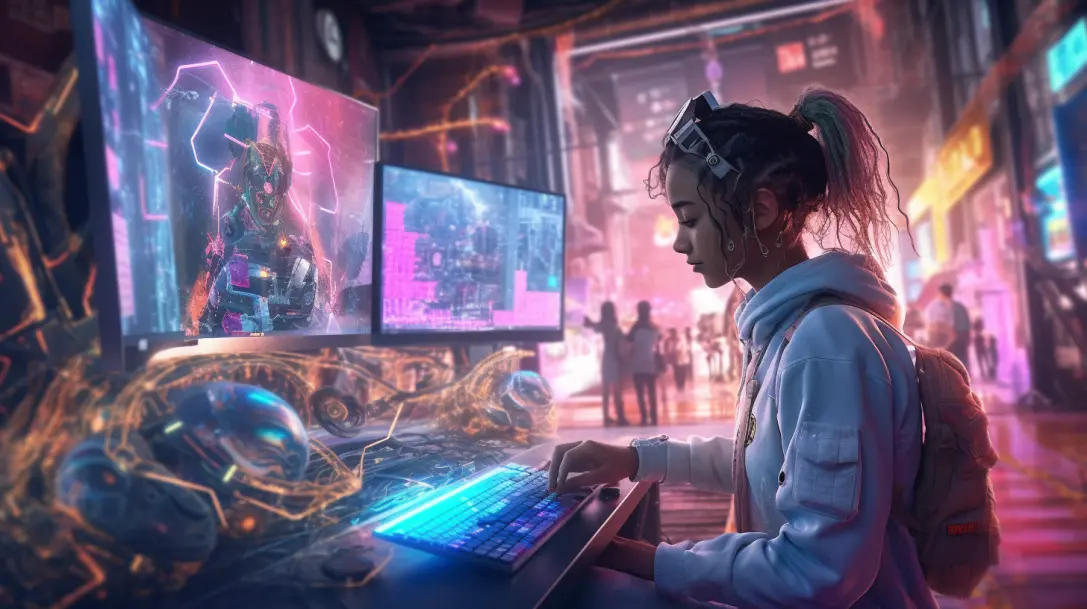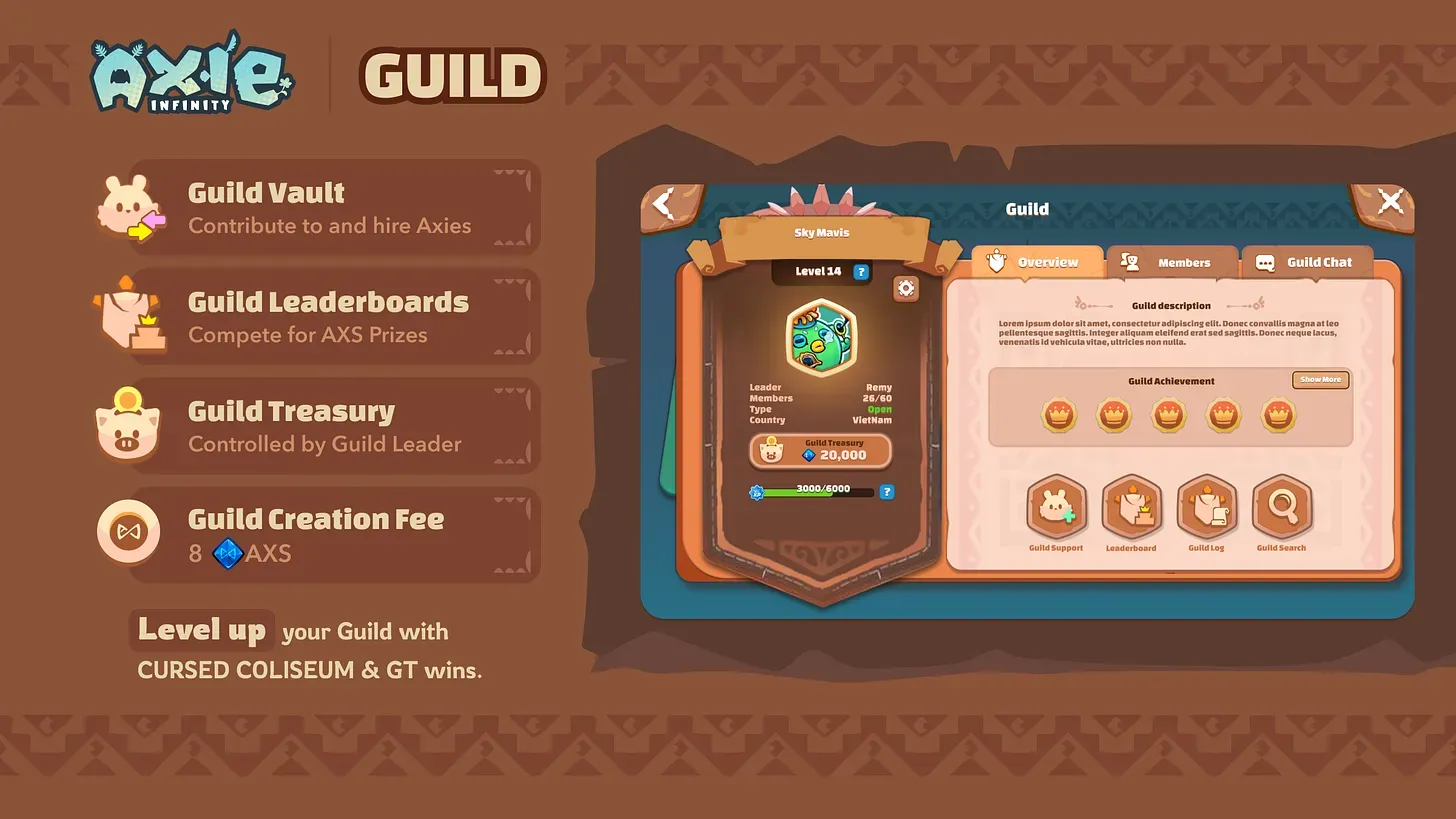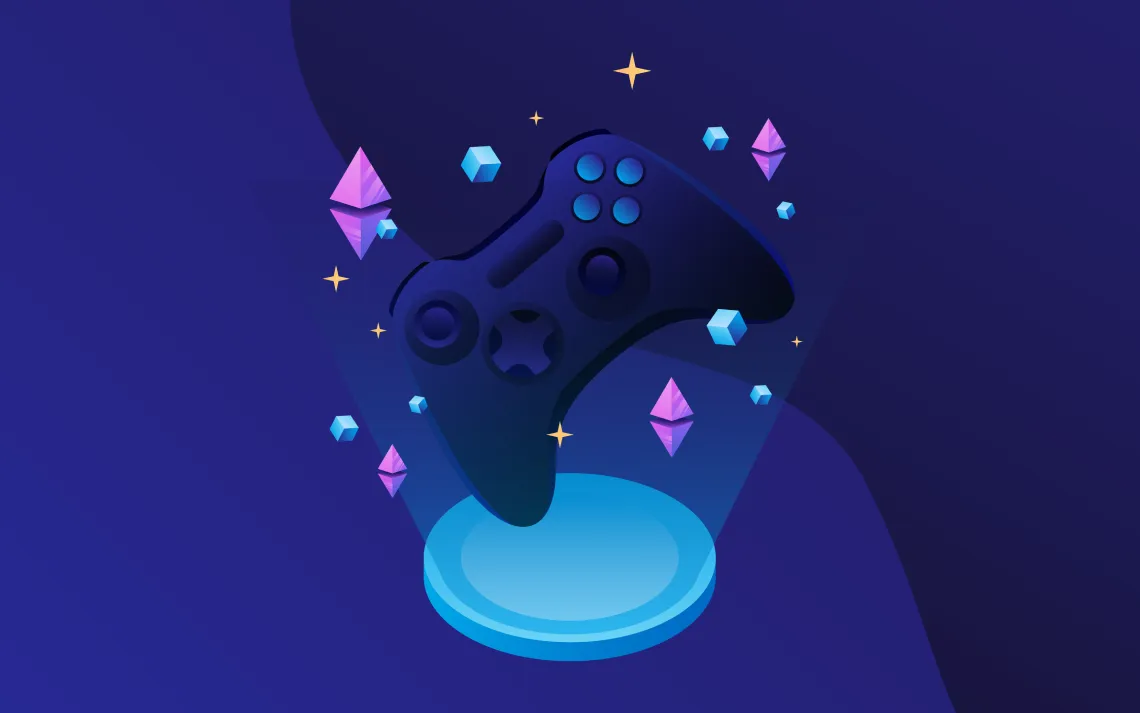In the dynamic realm of blockchain-powered gaming, a new player has emerged on the stage of decentralized entertainment – the crypto gaming guild. This innovative concept represents a community-driven paradigm, uniting players, enthusiasts, and game developers under a decentralized autonomous organization (DAO) structure.
Aimed at overcoming entry barriers and fostering a mutually beneficial ecosystem, crypto gaming guilds redefine traditional gaming communities by intertwining collective ownership, financial mechanisms, and a shared passion for gameplay.
In this article, we dive into the intricacies of crypto gaming guilds, deciphering their fundamental workings, their role in the blockchain gaming landscape, and their potential to shape the future of GameFi.

What is a Crypto Gaming Guild?
A crypto gaming guild serves as a decentralized entity that unites players, enthusiasts, and game developers within a shared community, collaborating to play games and exchange resources. The emergence of high-quality blockchain-powered games has fueled interest in GameFi, a fusion of gaming mechanics with financial elements.
Despite the success of the play-to-earn gaming model, it often poses a significant entry barrier for newcomers who must obtain in-game assets to start playing and competing. Crypto gaming guilds address this challenge by establishing a symbiotic relationship where new players integrate into the game's ecosystem, and the guild expands its influence in GameFi.
"Crypto gaming guilds were created to help new players overcome these hurdles by creating a mutually beneficial dynamic where both new players can join the game’s ecosystem and the guild can grow its influence across GameFi."

How do Crypto Gaming Guilds Operate?
Operating as decentralized organizations, crypto gaming guilds bring together players, enthusiasts, and game developers under a community umbrella. Typically structured as decentralized autonomous organizations (DAOs), these guilds make collective decisions based on member input.
Funding for guilds stems from a combination of member contributions and revenues generated through in-game activities and gaming ecosystem ventures. Through the guild, new players can access non-fungible token (NFT) assets, like in-game characters or items, either by renting from other members or borrowing from the guild. This facilitates their entry into the game's ecosystem and kickstarts their ability to earn in-game rewards.
While similar to traditional gaming guilds or clans, crypto gaming guilds leverage blockchain's open in-game economies, fostering a stronger sense of collective ownership. Unlike traditional games where ownership approval lies with the game developer, crypto games recognize it as a fundamental right.

Scholarship Programs in Crypto Gaming Guilds
A distinctive feature of crypto gaming guilds is the inclusion of scholarship programs designed to onboard new players into the blockchain gaming ecosystem. Originating from early play-to-earn games like Axie Infinity, where acquiring in-game creatures became costly, guilds provide NFT assets to new players.
These players then share a portion of their rewards with the guild, establishing a mutually beneficial arrangement that eases financial barriers for new players while expanding the guild's influence in GameFi.
Just today, Axie Infinity continues to captivate players and enthusiasts alike with its innovative approach to decentralized play-to-earn ecosystems. The latest milestone in the Axie universe has arrived, heralding a new chapter in the game's history — the launch of Axie Infinity Classic Guilds. You can read more about that here.

The Role of Guilds in the Crypto Space
Beyond scholarships, guilds aim to offer additional benefits, such as organizing and strengthening gaming communities. By providing a platform for collaboration, strategy sharing, and collective play, guilds create tight-knit communities within web3 gaming, supporting the economic sustainability of blockchain games. Influential guilds may even influence game development decisions by providing valuable player feedback.
Guilds act as quality control filters for GameFi projects, protecting members from fraudulent ventures. Through due diligence and promotion of legitimate games, guilds drive the growth and adoption of the broader blockchain gaming industry.
Additionally, crypto gaming guilds serve as educational hubs, helping new players grasp web3 gaming concepts like setting up wallets, managing assets, and fund transfers.
For example, the Ronin Wallet recently underwent a significant upgrade, promising enhanced security, multi-chain support, and a sleeker, more intuitive design. This comprehensive update is set to redefine the gaming experience for users, offering a glimpse into the future of gaming technology. You can read more about that here.

Profit Sharing in Crypto Gaming Guilds
Typically, gaming guilds implement profit-sharing systems to incentivize member participation based on revenue from in-game activities and other ventures. This often involves distributing earnings proportionally among members according to individual contributions, such as purchased tokens, NFT assets, time spent playing games, or specific in-game achievements. Some guilds utilize tiered systems, rewarding more active or higher-contributing members, resembling involvement in early-stage startups.
Final Thoughts
The Future of GameFi and Crypto Gaming Guilds
As the world's largest entertainment industry, gaming is poised to witness increased participation in blockchain gaming. In this evolving landscape, crypto gaming guilds play a pivotal role in driving the adoption of GameFi by highlighting the best games, fostering community, and increasing overall participation.
This article was inspired by an original blog post from Chainlink you can read the full post on their website here for more information.





